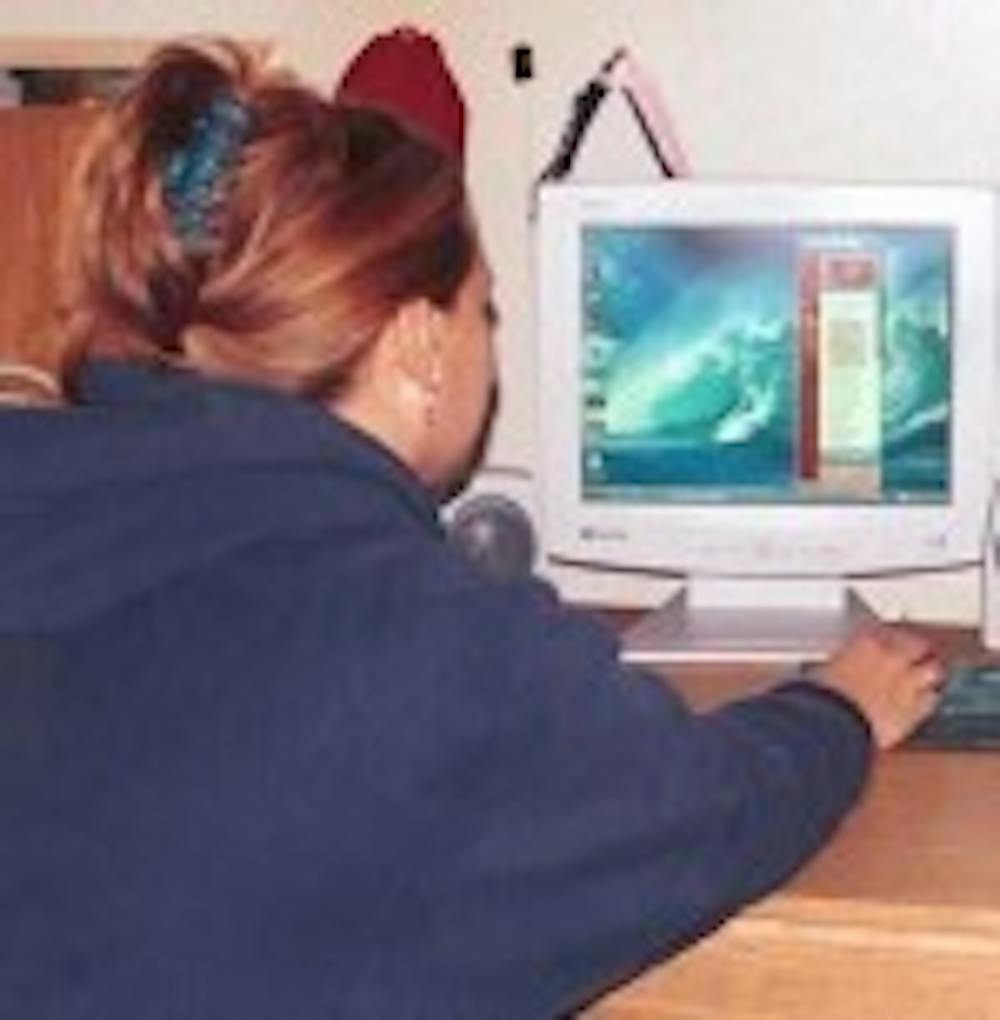College students are notorious for leaving their computers on constantly, downloading music, movies, and whatever else they can find for free on the Internet. While music executives may argue that these students are damaging their profits, do students ever question the damage to their computers?
"I used to download music. So when I did that sometimes I would (worry) because at home I downloaded Kazaa, and I ended up getting a virus," said sophomore medical technology major Nicole Lostritto.
Matt Stock, director of Information Technology for Computer Science and Engineering, warns students that downloading things can be harmful, not for the equipment but more for the system itself.
"Typically (downloading programs) come with Spyware. So for example, when you install things like Kazaa or some of the other file sharing tools, while it's installing it installs a bunch of other things which may for example monitor what Web sites you go to and tell somebody about it."
Other than the risk of getting a virus and spyware, though, some students might worry that leaving their computers on constantly could have damaging effects, a concern Helene Kershner, assistant chairman for the department of computer science and engineering, says is unnecessary.
"Most of the faculty in this department leave their computers on all of the time and it has absolutely no effect on the system," said Kershner.
The things that tend to go first in computer systems, according to Kershner, are the monitors, hard drives, and power supplies.
Daniel Kaputa, a first-year graduate student studying bio-photonics, agrees it is safe to leave computers on constantly, even for weeks at a time.
"It's like a light switch, the light always burns out when it goes on. It's that surge. Therefore it's actually safer to leave them on all the time," he said.
Kershner said power surges are especially harmful to monitors.
"(A monitor) is like a TV set, if it gets left on all the time, eventually something in it will conceivably break; it's also susceptible to power surges," said Kershner.
According to Kershner, the computer's hard drive is the most likely part of a computer to break, because it is constantly in use, unlike other components of the system.
"If you download constantly, and you copy CDs constantly and you're storing music constantly, you're erasing and putting more stuff on," she said. "That means that the drive is in constant use, constantly being spun, constantly being accessed. Like any other device that's moving all the time, that will break."
Sophomore Kristie Beamer, a civil engineering major, compared her computer's hard drive to a messy desk.
"Every time you take something out ... it's like your desk becomes more cluttered and the longer you leave it on, all those pop-ups and things that happen when you're sleeping or not there slows down your virtual memory and that in turn slows your computer down," she said.
Stock also warns about the possibility of hardware being damaged and computers overheating because of dust accumulation.
"Dust that accumulates in computers will cause it to overheat sometimes. Heat is really the biggest enemy of the computer's insides, so if lint or anything like that kind of accumulates then that will cause it to be insulated and it will heat up more," he said.
According to Stock, this build-up of dust will cause the computer to not function properly.
Ryan Clark, a freshman physical therapy major who is allergic to dust, said he has noticed a lot of dust in the dorms.
"The dust build-up is so great that it can mess up your computer system," said Clark.





